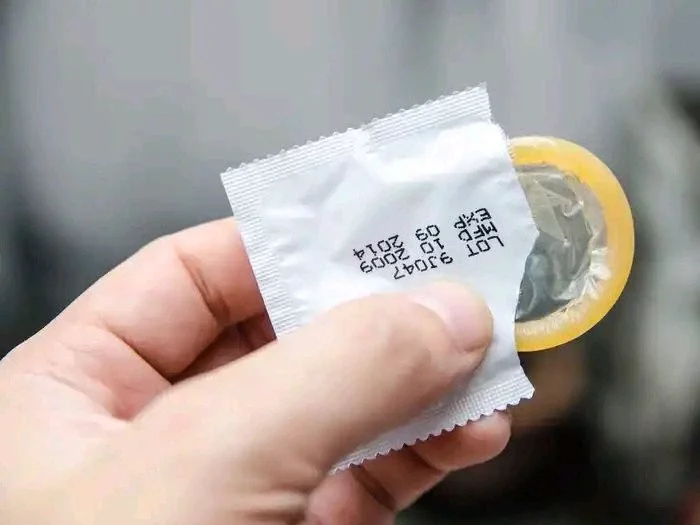The human body is a complex system that requires careful attention and care. Unfortunately, infections can occur, and when they do, it is essential to recognize the signs and seek appropriate medical attention. One area of concern for men is infection within the pènis. Ignoring or neglecting symptoms can result in severe complications, so it is crucial to be aware of the signs that show an infection is growing in your pènis. In this article which is in accordance to healthline, we will discuss some common symptoms and provide important information on seeking appropriate treatment.

1. Pain or discomfort: One of the first signs that may indicate an infection in your pènis is pain or discomfort. This can range from mild to severe and might be accompanied by a burning sensation or itching. The pain can occur during urination, sèxual activity, or even at rest. If you notice any unusual sensations or discomfort in your pènis, it is essential to consult a healthcare professional for a proper assessment.
2. Redness and swelling: Infections can cause noticeable changes in the appearance of your pènis. Redness and swelling are common signs of inflammation, indicating that your body is trying to fight off an infection. The affected area may appear redder than usual, and swelling can make the entire pènis or specific regions seem larger or more engorged. These changes should not be ignored and require immediate medical attention.
3. Discharge: Any unusual discharge from the pènis may indicate an infection. While some amount of clear or whitish discharge is normal, it should not have an unpleasant odor or be excessive in quantity. A change in color, consistency, or smell could be a sign of a bacterial or fungal infection, such as balanitis or sèxually transmitted infections (STIs) like gonorrhea or chlamydia. If you observe any abnormal discharge, it is important to consult a healthcare professional for a proper evaluation.
4. Sores or ulcers: Development of sores or ulcers on the pènis can be a sign of an underlying infection. These can be painful and may appear as open, pus-filled blisters or crusted sores. They can be caused by STIs like genital herpes or syphilis. Delayed treatment can result in worsening of the infection and severe complications, so it is crucial to seek medical attention promptly if you notice any sores or ulcers.
5. Difficulty urinating: Infections within the penis can also affect your urinary system, leading to difficulties in urinating. You may experience pain, a burning sensation, or a frequent urge to urinate. In some cases, you may notice blood in your urine, indicating a more severe infection or damage to the urinary tract. If you experience any difficulties or abnormalities while urinating, it is essential to speak with a healthcare professional for proper diagnosis and treatment.
6. Fever and general malaise: Systemic symptoms like fever, fatigue, and a general feeling of being unwell can sometimes accompany a growing infection in the penis. These symptoms suggest that the infection may have spread beyond the genital area, potentially causing a more severe condition called sepsis. If you experience these symptoms along with any of the previously mentioned signs, it is crucial to seek immediate medical attention.
7. Painful or difficult erèction: Infections can also affect the quality and ease of erections. If you notice pain or difficulty achieving or maintaining an erèction, it may be a sign of an underlying infection. Inflammation and swelling within the pènis can disrupt the normal blood flow required for an erection. Any persistent issues with erèctions should be evaluated by a healthcare professional to rule out any serious infection or underlying medical conditions.
When experiencing any of these signs, it is essential to consult a healthcare professional for an accurate diagnosis and appropriate treatment. Ignoring or neglecting symptoms can lead to complications such as tissue damage, scarring, or the spread of the infection to other sèxual partners.
Treatment options will vary depending upon the specific infection, but may include the use of antibiotics, antifungal medications, or antiviral drugs. It is crucial to complete the entire course of prescribed medication, even if symptoms improve, to ensure complete eradication of the infection.
In addition to medical treatment, maintaining good sèxual hygiene is crucial for preventing and managing infections. Regularly washing the penis with warm water, avoiding harsh soaps or chemicals, and practicing safe sèx by using barrier methods like condoms can significantly reduce the risk of infections.
recognizing the signs that show an infection is growing in your penis is vital for your overall health and well-being. Prompt medical attention and adherence to prescribed treatments can help prevent complications and ensure a speedy recovery. If you notice any abnormal symptoms, don't hesitate to seek medical advice, as early intervention plays a crucial role in preventing further complications and restoring your penile health.

















Comments